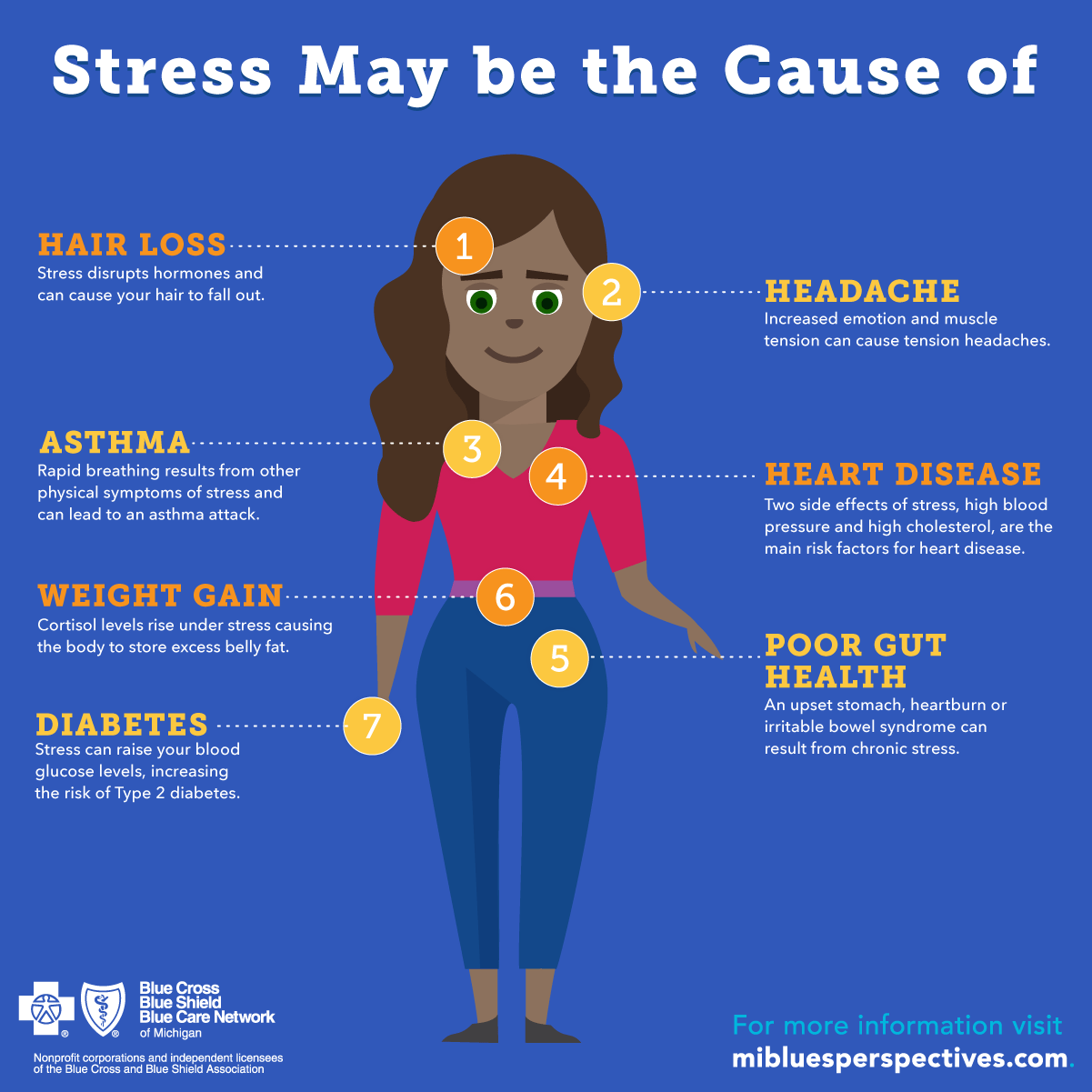Did you know that our brain has five times more negative circuits than positive circuits causing the brain to always look for safety first before pursuing rewards? In other words, our brain is always on the lookout for dangers and threats (which is also called survival mode).
Stress–
All of us suffer from it in today’s life – It is not really a bad thing to have stress, in fact, our body works well and grows stronger both physically and mentally under stress.
Have you ever thought about the role stress plays in anger?
Many studies have proven that stress is more prevalent today than 20 years ago. Similarly, there are many others who claim that there is increasing anger in our day-to-day lives (from road rages to workplace violence to domestic violence). Stress can create a variety of problems. If you are prone to anger than stress is likely to increase your anger behavior.
Stress is healthy when controlled
Healthy stress [Eu stress] is what get us out of bed in the morning and make us pay attention to the details throughout our day. This type of stress does not cause anger or any type of irritability. This type of stress may be referred to as “Lazy or Unmotivated”.
Distress
on the other hand, is a type of stress that causes many people to be irritable and angry. Distress is a state when stress ceases to be a motivator and begins to show its harmful effects. A cousin of mine was recently complaining about how stressed out he was and completely exhausted because of the work pressure.
Not only my cousin but in fact, I keep on hearing from many of my friends and colleagues that they are stressed out. However, stress is different for different people. For a school going it is the pressure of performing well in exams and for you, it may be feeling stressed out because you have too much on your plate, deadlines are coming, and people are counting on you.
What do you feel under stress?
When you are feeling stressed or angry, there are some more feelings that are fueling it. Often, it is being overwhelmed, disrespectful, fearful, and so on. It is very important to look at the feelings behind the stress to better understand why you are having this reaction as it can have a negative impact on health.
Worry and overwork may lead to unhealthy lifestyle habits, which causes more stress, leading to very harmful cycle. For example: if you are facing a very tight deadline, like my cousin who might usually rely on caffeine and sugar to get through the day. But unfortunately, these food choices may create more stress in long run, as well as other problems.
Stress-Induced Habits:
Stress causes an increase in cortisol levels, the stress hormone, in the body that tends stressed people to crave foods that are high in fat, sugar, and salt. Stress has various triggers and different people may respond to different stresses, I have tried to enlist a few of these reasons –
- Drink too much caffeine.
- Eat food that isn’t healthy.
- Obsess certain food.
- Emotional Eating.
- Don’t get enough sleep.
- Don’t exercise.
- Focus on bad instead of good.
- Get overwhelmed easily.
How does Stress Affect the Body:

Symptoms of stress are related to the habits that a person usually tends to grow. Stress symptoms can affect your body, your thoughts, and your feelings too. Stress has acute effects such as Insomnia, low energy, aches, pains, frequent cold, and coughs as well as chronic effects such as mental health problems, depression, anxiety, and personality disorders. Also diseases such as heart disease, high blood pressure, heart attacks, and, stroke. Obesity and eating disorders menstrual problems in women, skin and hair problems such as acne or permanent hair loss.
Fast track to reduce your stress.
Avoid caffeine, Alcohol, and Nicotine:
It causes a negative effect on the body if taken in large quantities and can strip the body of essential nutrients. Cortisol levels may be elevated by caffeine and stress alike. High intake of Caffeine can lead to sustained higher levels of cortisol and thus resulting in negative health effects.
Avoid high fat, sugar, and salt consumption:
Consumption of these items is known to strip the body and mostly leads to metabolic syndrome.
Eat a healthy and Balanced diet:
A balanced Diet is the key to reducing stress. Because of weight gain due to stress many people for Crash diets or FAD diets are usually low in carbohydrates, proteins, and other major nutrients that the body is really in need of during this phase of life. A proper Balanced Diet with major nutrients along with lots of fruits and vegetables will help you to maintain a healthy weight without gaining too much.
Because as it is said ‘Once On Your Lips, Forever On Your Hips’.
Indulge in Physical Activity:
Regular exercise along with a healthier and balanced diet can help reduce stress levels and may probably lead to weight loss. The brain is a network of nerve connections that spread all through the body- thus any stress on the brain is going to affect the body as a whole.
The feel-good hormone- Endorphin is released whenever we exercise or undertake a physical activity. These Endorphins are chemicals released in the brain that have multiple effects on the body, the most important of which is their action as natural painkillers and their ability to improve the quality of sleep, which in turn reduces stress.
Get More Sleep:
Sleep is an integral function for us — a sound and refreshing sleep helps the brain to de-stress, and relax and allows our body to get adequate rest. Sleep is an important physiological function of the body and even minor changes in sleep patterns or any sleep deprivation can affect memory, judgment, and mood. Chronic sleep deprivation has been known to bring on feelings of listlessness, and various other health problems, like obesity and high blood pressure to safety risks while driving.
Try Relaxation techniques :
Spend time with friends and family, talk to them about problems you are having and find time to solve them. Relaxation is an art and science in itself and there are various techniques that may help in improving an array of health conditions, including anxiety associated with illnesses or medical procedures, and insomnia. In modern-day practice, relaxation techniques have been positively associated with improving a lot of health conditions.
Keep Track of your stress by making a stress diary :
This is the most reliable method to keep track of your stress as it will help you become more aware of the situations which cause you to become stressed. For Example, make a diary and write down why are you feeling stressed and try to find out the reason behind it, so next time when you feel the same you can just make out what causes you to be stressed again.
Manage your time :
At times we feel overburdened by our ‘To Do’ list and this is the common cause of stress. Accept that you cannot do many things at once and start to prioritize and diarise your tasks.
So ultimately, the bottom line is Track Your Own Stress because, there is going to be stress in your life but, it is your choice whether you let it affect you or not.








1 thought on “Is Your Stress Getting The Better Of You?”